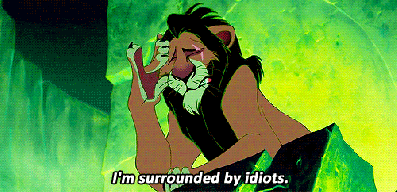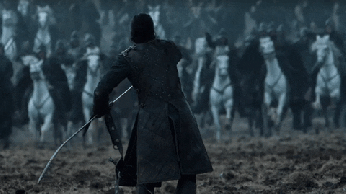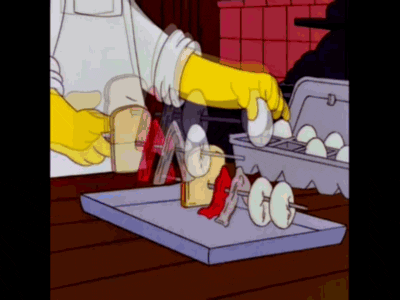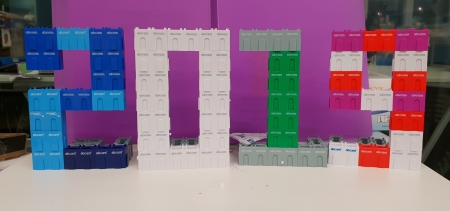There’s more to see than can ever be seen, More to do than can ever be done.

Never was a truer word said about research.
September rolls in, and along with shorter days and colder climates come the fresh faces of new PhD students. The start of a new academic term has me looking forward and looking back in an uncharacteristically poignant fashion, please indulge me and I promise many Disney references.
The Tissue Repair Wellcome Trust programme that I’m on was pioneered (as they like to remind us) by two cohorts that came before us, who followed the same structure of two rotations and a 3.5 year project, so have just submitted their theses. Meanwhile, a new cohort of students have just joined the programme two years below and it feels like we’re all on the endless round of the circle of… academia.
After an incredibly nostalgic trip to see the new Lion King movie I would now like to present my unrequested advice for new students using a slightly laboured analogy of all the songs I loved so much.
Gonna be the main event, like no king was before

The enthusiasm! The excitement! Every student’s project will change the world! Actually this is great stuff and will drive you and carry you initially so ride that high. It’s a huge accomplishment to get yourself to this point, and it’s easy to forget when you’re in academia and the watering hole is flooded with doctorates, that only 2% of the population have PhDs. Congrats and yes definitely have lofty goals for your project. But know that the wildebeest will at some point storm the canyon and those plans will change. You can still be king (queen)!
The best and the worst thing about a PhD is that you’re in charge of your own time. However, don’t get the idea that there is no-one saying do this, no-one saying be there, no-one saying stop that, no-one saying see here (now see here!). You’ll have obligations and demands from your supervisor, from your lab, from your project and side projects – prioritising and managing these is how you’ll progress.
Yes our teeth and ambition are bared, be prepared.

Some practical advice. Have a numbering system for your experiments, or some way of keeping record of them. I know that my powers of retention, are as wet as a warthog’s backside so it’s crucial. Track them, note them down, record when you did them and what you did them for. If you have an experiment that continues over several weeks and has multiple steps give it a number and follow through in your lab book all the steps. For example, I will isolate cells, grow them up with several media changes, fix the cells with PFA, stain them with fluorescent antibodies, image them and analyse them. This takes time but I’ll call it all EXP012 and then when I leaf back through my lab book I can follow what I’ve done. This is useful for you throughout your PhD, is useful for future you when you’re coming back to write your thesis and for any future students trying to work out what you did. Meticulous planning, tenacity spanning, decades of denial.
An addendum to this. Do it in a way that feels sustainable. It’s like when I Marie Kondo’d my clothes and folded all my jumpers neatly in the drawer and felt so smug and proud, but inevitably the system broke down when I started just shoving the odd jumper in after a long day. Similarly, I initially and boldly decided to individually number every single microscope slide I prepared and record them all in an excel spreadsheet. This didn’t exactly work for me and I ended up spending more time updating this compendium than it was saving me, so I modified the system. Don’t die on the hill of your own organisation either, be flexible to be kind to yourself.
It means no worries, for the rest of your days

Science does not work. A lot. This is something that isn’t clear in papers or in research talks or in your undergraduate degree. Even rotation projects and Masters are often set up to succeed with clear defined goals (not always, I know!!). So when you get to the PhD and you’re pushing the frontiers of your area of research things will, inevitably, fail. It’s often not your fault, or it’s just a simple mistake, but it can be hard to take.
 Try not to let it get to you and adopt the Timon and Pumba philosophy… Not to the extent that you completely don’t care or that you eat grubs/C. elegans but when something doesn’t work, say Hakuna Matata, work out what went wrong and try again! Time will move on as if in a montage over a tree trunk, you will grow and learn and quite possibly put on as much weight as Simba does in this gif but it’s all good.
Try not to let it get to you and adopt the Timon and Pumba philosophy… Not to the extent that you completely don’t care or that you eat grubs/C. elegans but when something doesn’t work, say Hakuna Matata, work out what went wrong and try again! Time will move on as if in a montage over a tree trunk, you will grow and learn and quite possibly put on as much weight as Simba does in this gif but it’s all good.
Can you feel the Love Tonight?
You needn’t look too far…
This song was a tricky one to integrate into this blog frankly but what I’m going to put out there is see the support from those around you. There’s nothing like the love of a lab meeting to get you through the start of your PhD. Present that shitty data, ask for help, find others going through the same thing. Rafiki had the answers for Simba, and for you, Rafiki will come in the form of your post-docs, your supervisor, other students… You’ll need both of the following reactions to get you through.





 I used to hate Gantt charts as they’re so hard to stick to over long periods. When Mr. Gantt invented them in the early 20th century I bet he never anticipated them being formulated on a complex computer program, nor how much fear they would instil in the hearts of every PhD student who has ever attempted one.
I used to hate Gantt charts as they’re so hard to stick to over long periods. When Mr. Gantt invented them in the early 20th century I bet he never anticipated them being formulated on a complex computer program, nor how much fear they would instil in the hearts of every PhD student who has ever attempted one.







 The Hollywood actress Hedy Lamaar was called ‘the most beautiful woman in films’, and was a beloved pin-up during the second world war. She starred in the silver screen throughout the 30s and 40s.
The Hollywood actress Hedy Lamaar was called ‘the most beautiful woman in films’, and was a beloved pin-up during the second world war. She starred in the silver screen throughout the 30s and 40s. Lamaar asked to join the National Inventors Council on the back of her original patent but was told her efforts would be better placed selling kisses ($50K each!) and posing for pin-up shots to encourage soldiers fighting on the front line. Can you imagine a world where, instead of being dismissed, Hedy and George were given funding for their research? We might have accelerated the technological boom by a couple of decades. Was she dismissed entirely because she was a (very beautiful) woman or because her invention was lacking something? It’s hard to say, but isn’t that always the argument of unconscious bias.
Lamaar asked to join the National Inventors Council on the back of her original patent but was told her efforts would be better placed selling kisses ($50K each!) and posing for pin-up shots to encourage soldiers fighting on the front line. Can you imagine a world where, instead of being dismissed, Hedy and George were given funding for their research? We might have accelerated the technological boom by a couple of decades. Was she dismissed entirely because she was a (very beautiful) woman or because her invention was lacking something? It’s hard to say, but isn’t that always the argument of unconscious bias.

 Making a goal like ‘Be more organised’ is infinitely harder than making your goal ‘Organise my folders/microscope slides/sock drawer’, or even better ‘Write down all my appointments in my new diary’. Basically, how will you know when you have become Organised Person™? And, oh man, make it realistic. I don’t mean make it easy, but If you are not a morning person, don’t make your goal ‘do a 10K run before breakfast’. You will not stick to it and you will feel crap about yourself.
Making a goal like ‘Be more organised’ is infinitely harder than making your goal ‘Organise my folders/microscope slides/sock drawer’, or even better ‘Write down all my appointments in my new diary’. Basically, how will you know when you have become Organised Person™? And, oh man, make it realistic. I don’t mean make it easy, but If you are not a morning person, don’t make your goal ‘do a 10K run before breakfast’. You will not stick to it and you will feel crap about yourself.

 *David Attenborough voice:*
*David Attenborough voice:* Cut to next scene. The overwhelming whirr of the fume hood fills the windowless room, the camera follows a lab-coated figure as they collect numerous bottles, tubes and plates, initially spraying each individual item painstakingly with a translucent spray bottle, then seemingly getting bored and spritzing everything including themselves liberally until all is slightly damp.
Cut to next scene. The overwhelming whirr of the fume hood fills the windowless room, the camera follows a lab-coated figure as they collect numerous bottles, tubes and plates, initially spraying each individual item painstakingly with a translucent spray bottle, then seemingly getting bored and spritzing everything including themselves liberally until all is slightly damp.  Here we join our student in one of the darkest of their habitats. The blackness of the microscope may be to protect the immunofluorescent slides, but it also serves to lull the PhD student into a stupor akin to intoxication. All time is lost here in the darkness, the slow flicker of the laser instead acting as the second hand of a clock counting down the minutes until the student must vacate to make room for the next user. They adjust and then re-adjust settings, muttering “real or artefact?” under their breath, though it is unclear who they expect to answer.
Here we join our student in one of the darkest of their habitats. The blackness of the microscope may be to protect the immunofluorescent slides, but it also serves to lull the PhD student into a stupor akin to intoxication. All time is lost here in the darkness, the slow flicker of the laser instead acting as the second hand of a clock counting down the minutes until the student must vacate to make room for the next user. They adjust and then re-adjust settings, muttering “real or artefact?” under their breath, though it is unclear who they expect to answer.